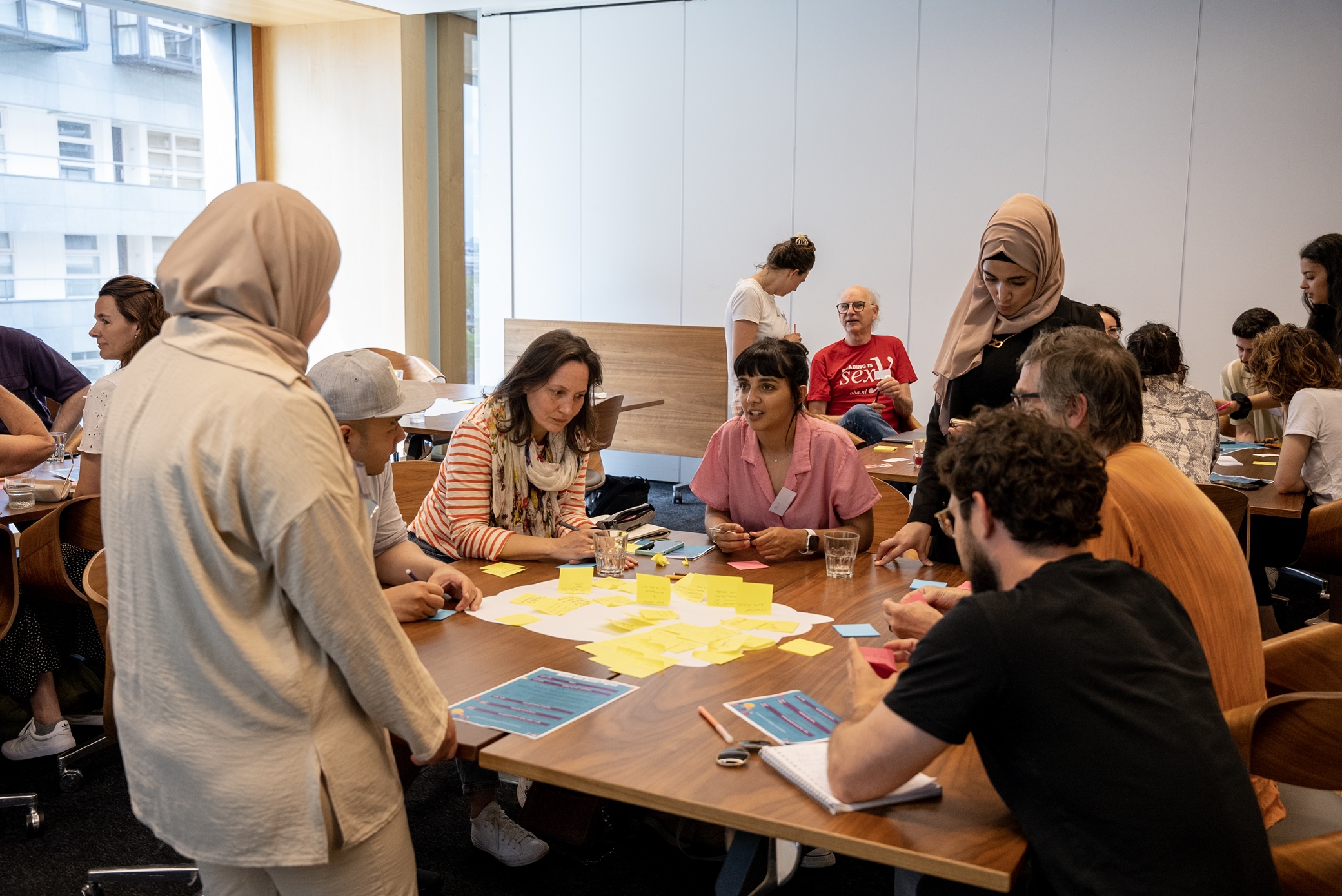Interdisciplinary Course on Healthy and Sustainable Food Systems or Mental Resilience (Blended Intensive Programme – BIP)


Are you passionate about addressing real-world challenges in food systems, sustainability, and health? Join the Interdisciplinary CSL Course at VU Amsterdam, part of the Erasmus+ Blended Intensive Programme (BIP). Open to all Master’s students from Aurora Universities, this course brings together students from diverse disciplines to develop innovative solutions for a sustainable future.
This edition we have two main topics:
- In collaboration with the European research projects CLEVERFOOD, FOSSNET, and FOSTER, focuses on health and sustainable food systems. You’ll work on practical cases, collaborating with researchers and non-academic stakeholders on food system transformation projects.
- In collaboration with the Amsterdam-based Knowledge Alliance on Mental Strength, and European project – Re/Presenting Europe, focuses on mental health, resilience and healing. You’ll work on practical cases, collaborating with researchers and non-academic stakeholders on projects that focus on improving the mental wellbeing of the public.
Why join this course?
- Gain a deep understanding of today’s critical food system challenges
- Collaborate in cross-disciplinary teams
- Contribute to innovative solutions for real-world problems
Course timeline:
- Registration deadline: 2 December 2024
- Acceptance notification: 07 December 2024
Virtual sessions (February – June 2025):
- Participate in 8 to 10 online sessions on interdisciplinary collaboration, system innovation, and food systems sustainability or mental health and well-being, and resilience and healing.
- Engage in self-study to explore theoretical and practical approaches.
On-site Learning Week (16 – 20 June 2025):
- Join your peers in Amsterdam for hands-on work in real-world challenges to foster practical solutions for food system transformation.
- Join multi-actor workshops designed to networking and soft-skills.
Who can apply?
We encourage applications from students of any academic background. Whether you have experience in one of the topics or expertise in other areas, your unique perspective is valuable. In your motivation letter, please state which of the two topics you want to follow and how your studies can contribute to one or more of the associated sub-themes below:
Related to Healthy and Sustainable Food System:
- Environment: Addressing climate change, enhancing circular economy principles in food systems, reversing biodiversity loss, and creating environmentally positive impacts.
- Health: Exploring solutions to combat obesity, ensuring food security and nutrition, promoting public health, and providing access to safe, nutritious, and sustainable food.
- Innovation & (Social) Entrepreneurship: Tackling issues such as circular economy, food affordability, promoting fair economic returns, and fostering (social) innovation.
Related to Mental Health and Resilience:
- Mental health: Understanding and addressing the complexity surrounding the exponential increase in mental health issues around the world, and finding ways to make positive impacts.
- Resilience and Healing: Exploring solutions and strategies to improve and foster mental health resilience and personal as well as communal healing.
- Systems thinking: Co-ideating solutions and tackling mental health issues using a systems approach – that focus on different levels of society, systems and policies.
There’s room for a wide range of interests, including agricultural sciences, health science, sustainability, governance, technology, business, social sciences, and beyond. Show us how your field of study can contribute to transforming food systems.
Registration procedure and information sessions
- Home university selects 5 students max (per course) that can apply and are eligible for Erasmus+ BIP funding.
- Student sends motivation letter to Eduardo Urias with the preferred topic ‘healthy and sustainable food systems’ or ‘mental resilience’ in the subject before 2 December.
- Student receives acceptance to the course before 6 December.
- Student can start registration process with the deadline 19 December.
Are you interested in joining this course? In case you have additional questions about the course we offer two Q&A sessions. The sessions take place on 12 November afternoon at 16:00 (CES) and 27 November at 10:00 (CES). Please register for these sessions via this link.